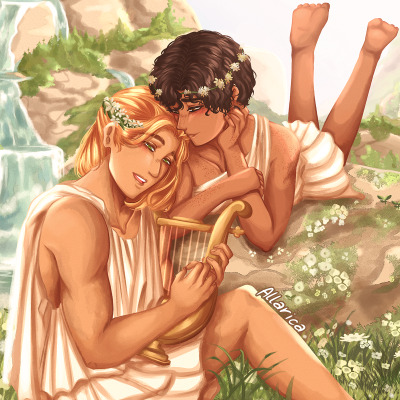Zeus and Ganymede

Dubbed as the most beautiful boy in the world, Ganymede possessed a beauty that captivated anyone who laid eyes on him. The rumors of his beauty reached the ears of the thunder god Zeus. From the peak of Mount Olympus, Zeus gazed upon Ganymede frolicking with his friends amidst a flock of sheep. Unable to contain his admiration for Ganymede’s beauty, Zeus transformed himself into a majestic eagle and abducted Ganymede to serve him eternally on Mount Olympus. However, Hera, Zeus’ wife, harbored jealousy towards Ganymede due to his earthly companionship. In her wrath, she unleashed her anger upon Troy, Ganymede’s homeland. To appease Hera’s fury, Zeus immortalized Ganymede as the constellation Aquarius, symbolizing the water-bearer who brings an end to a grand tale.
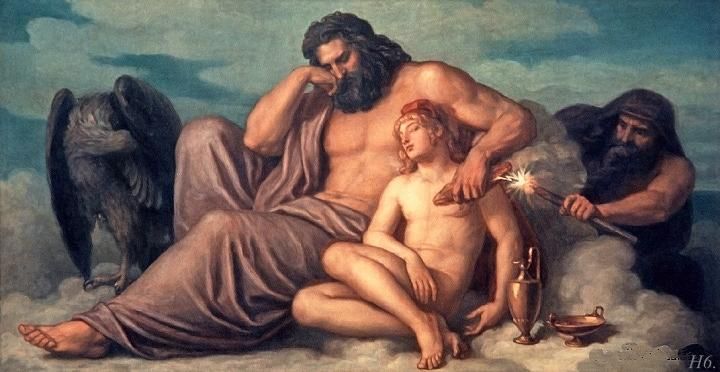
Apollo and Hyacinth

Hyacinth is known for being the tragic figure of a same-sex love story, causing immense grief in the life of the sun god Apollo. Hyacinth’s beauty was so captivating that both Apollo and the West Wind god Zephyrus fell deeply in love with him. However, unaware of their affections, Hyacinth maintained a close friendship with both gods. This fueled Zephyrus’ growing envy and jealousy. During a game of discus throwing with Apollo, Zephyrus, in a fit of jealousy, blew a strong gust of wind that caused the discus to strike Hyacinth’s head, tragically taking his life. Devastated by the death of his beloved, Apollo mourned by sitting beside Hyacinth’s body, shedding tears, and transformed him into a fragrant flower, forever blooming with radiant beauty.
Artemis and Callisto
Artemis, the goddess of hunting, embodies strength, independence, and self-love. As the twin sister of Apollo, Artemis possessed a pure and transcendent beauty but never succumbed to the advances of any male deity. Her attendants, the nymphs, were forbidden to have husbands. Callisto, an exquisitely beautiful nymph, was one of these attendants. During one of Artemis’ hunting expeditions, Callisto captured the attention of Zeus, who impregnated her. Enraged, Artemis banished Callisto. To this day, the legend of Callisto and Artemis is remembered in same-sex female relationships, and Artemis is revered as Artemis Orthia.
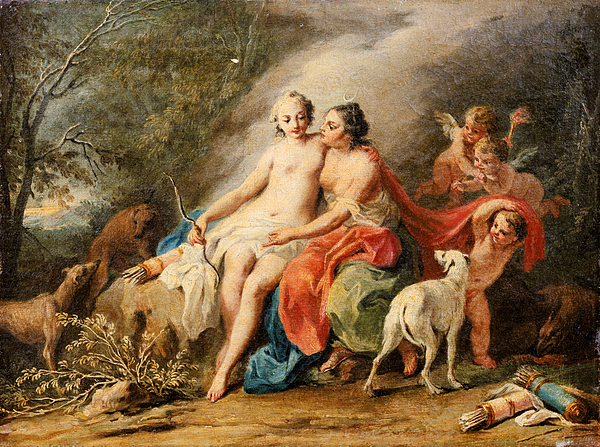
Achilles and Patroclus

Achilles, the son of the sea goddess Thetis, was a renowned hero known for his beauty and valor. When speaking of Achilles, it is impossible not to mention his same-sex love for his companion in arms, Patroclus. Achilles held a special affection for his “friend,” caring for him tenderly when injured and fighting fiercely against enemies solely for his sake.
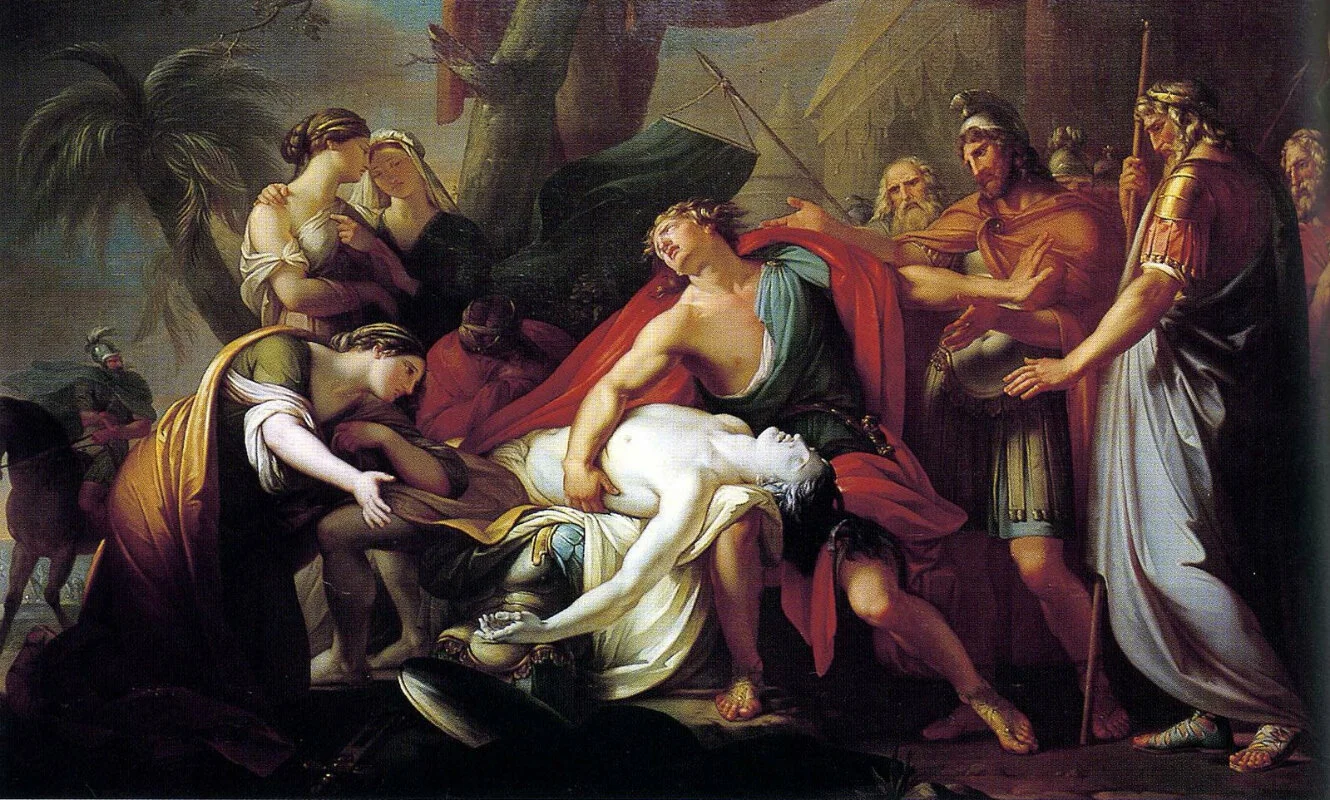
During the Trojan War, upon hearing of Patroclus’ death at the hands of Hector, Achilles was overwhelmed with grief. He embraced and mourned his lover’s body, weeping for several days and even contemplated suicide. Vowing to avenge Patroclus, Achilles returned to the battlefield, slaying Hector and annihilating many enemies, contributing to the fall of Troy. After Achilles was fatally struck by Paris’ poisoned arrow, the younger brother of Hector, their bodies were immolated together, their ashes mixed and placed in a golden urn by the sea goddess Thetis, and buried in a single tomb, ensuring that the souls of the two heroes would remain together for eternity.
Achilles mourning beside the body of Patroclus.
